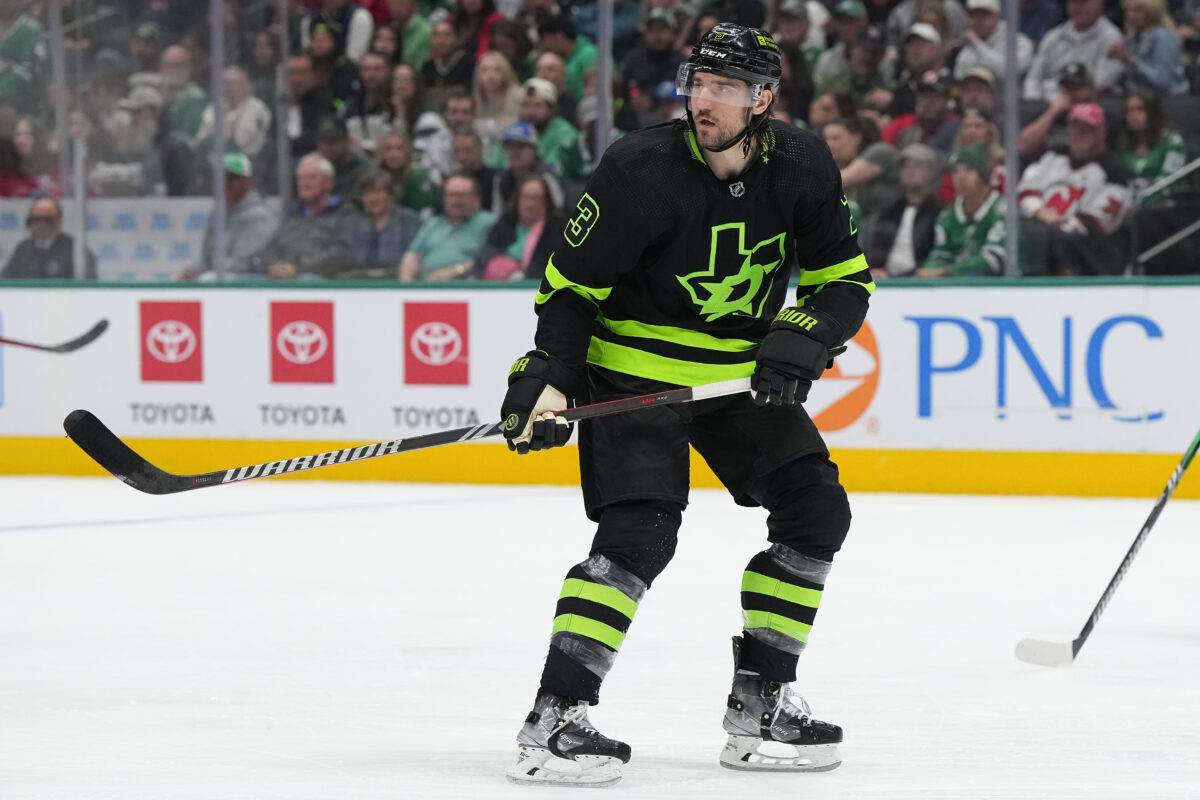In today’s NHL, the most competitive teams in the league often have the best salary cap outlooks — putting the right amount of money where it matters is arguably the most important piece of team building. In the Toronto Maple Leafs’ case, they’ve pumped over $40 million annually into their four most prominent forwards, leaving about half of their remaining salary cap to cover the rest of their lineup. As such, they’re the team that most needs to find cheap talent and steer clear of doling out too much money to the wrong players. With that in mind, there are certainly some contracts that haven’t worked out in their favour.
David Kampf: $2.5 Million AAV x 3 Years
Bar-none, the worst contract on the Maple Leafs belongs to David Kampf, the team’s fourth-line center. Brad Treliving’s first move as general manager hasn’t aged well, with Kampf arguably being the weakest link on the forward corps despite the relatively hefty paycheck. The move was perplexing when it was handed out, as he had only scored double-digit goals once in his career and hadn’t surpassed more than 27 points in a single campaign. As a product of Trevling’s poor judgment, Kampf has been in trade rumours this summer.
Related: Toronto Maple Leafs’ Point Projections for 2024-25
Sure, he has some utility as a faceoff man and penalty killer — and those are valuable traits to possess — but those don’t outweigh his complete inefficacy at 5-on-5. He had the second-worst expected goals share (xGF%) of any player on the Maple Leafs who played at least 15 games in the regular season, with his 43.17% solely better than Noah Gregor. In the playoffs, his effectiveness somehow worsened, with his xGF% dropping to just 30.45%. There really isn’t much he does at 5-on-5; he doesn’t generate chances nor prevent them, and he doesn’t shoot often or with success. All around, it’s one of the worst relatively low-value contracts in the league.
Chris Tanev: $4.5 Million AAV x 6 Years
After the team acquired his rights in June, stalwart defenceman Chris Tanev was extended to his six-year contract just three days later. Let me just start by saying that right now, $4.5 million is a fair deal for the 34-year-old. The true problem arises in the last three or so years of his contract when his age will almost certainly catch up to him. In fact, the term is questionable enough that there are questions as to whether or not the Maple Leafs purposefully increased the term to lower the average annual value (AAV) in order to stick him on Long-Term Injured Reserve (LTIR) for the last two or so seasons of it. Those questions are hearsay and most likely have no legitimacy, but the term being that long is a major concern.

Most models predict that defensemen begin their rapid fall-offs after age 33. Tanev has already felt some ramifications of his age, with his wins above replacement (WAR) percentile dropping roughly 15 points from 2022-23 to 2023-24. His role in Toronto should be more difficult, being penciled in as a top-pair defenceman for the first time in his career alongside Morgan Rielly, meaning that he won’t be able to feast on weaker competition like he’s become accustomed to. I’m sure he’ll still be successful defensively for at least the first couple of years of his new deal — he truly is an excellent defensive defenceman — but it’s a near-guarantee that he won’t live up to the $4.5 million annually for the duration of his contract.
Ryan Reaves: $1.4 Million AAV x 2 Years
Despite its relatively “meaningless” price, Ryan Reaves’ $1.4 million, multi-year contract should rightfully be scorned for being one of the worst deals on the Maple Leafs. I might be on an island in saying that his player archetype no longer has a place in the modern-day NHL, but outside of dropping the mitts now and then, there really isn’t much Reaves can do on the ice. He isn’t fast, he doesn’t put up goals or points, he doesn’t generate chances, he doesn’t play on special teams, and, as a winger, he doesn’t take faceoffs. Playing just over eight minutes a night probably means he shouldn’t have a contract at all, let alone a multi-year deal well over $1 million annually.
Abysmal stats aside, the real reason that this contract is so atrocious is that it’s completely counterintuitive to what the Maple Leafs’ agenda with the bottom-six should be: finding talent at value. With their four superstars making over half the salary cap, it is essential to penny-pinch talent with the rest of the lineup, and Reaves’ contract is laughable considering that fact. The team would be much better off playing a young player — say, Easton Cowan, Fraser Minten, or Nikita Grebyonkin for example — in the big leagues and using their offensive upside somewhere in the bottom-six. Treliving is much better off just putting Reaves on waivers and praying that someone else will take his contract off their hands.
Tavares’ Expiration Will Help Maple Leafs Cap Crunch
It’s incredibly obvious, but John Tavares’ albatross contract — one which could be considered one of their three worst — coming off the books after the 2024-25 season will take a ton of weight off of Treliving in terms of cap management. For the Maple Leafs’ sake, letting him walk to free agency would likely be the best possible result considering his still likely hefty price tag and decline from stardom. Doing so would make the atrocious bottom-six contracts in Reaves and Kampf look much better, though they would be wise to move on from the two of them and their awful contracts as well.
